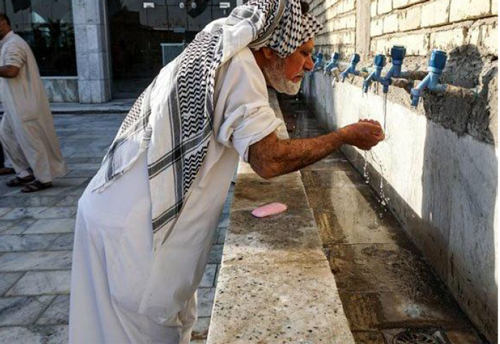LONDON The Muslim practice of Wudhu five-timesa-day before the compulsory prayers may have played a major role in preventing the spread of the novel coronavirus in British Muslim communities. According to a recent report by Professor Richard Webber from Newcastle University and former Labour Party politician Trevor Phillips, Muslims in the UK might be at a lower risk of the deadly coronavirus because they clean themselves five times a day. According to the duo, performing Wudhu five times a day and frequent hand washing might have saved many Muslims from contracting COVID-19. Low employment, especially of Muslim women, also might have contributed to controlling the spread of the virus in areas where there are greater numbers of Muslims. Only 29% of British Muslim women are employed, according to the Young Foundation A lack of employment implies less use of public transport and travel in hotspots. The duo suggests that some cultural habits of Muslims similar to isolation might have saved from contracting the virus. The report delves deeper into the coronavirus hotspots throughout the UK and deduces that the areas with a high concentration of Muslims aren’t included in the top lists, even though areas with high Bla ck and Ethnic Mi norities (BAME) are the worst-hit. Philips said that Blackburn, Bradford, Luton, Rochdale and Rotherham are “conspicuous by their absence” on the list of worst-hit places by the coronavirus, being both non-white and poor areas. All these areas have a high concentration of Muslims. In an opinion article, Phillips wrote: “Were poverty the key determinant, we would expect the virus to be running rampant among Britain’s Pakistani and Bangladeshi Muslim communities.—AFP









